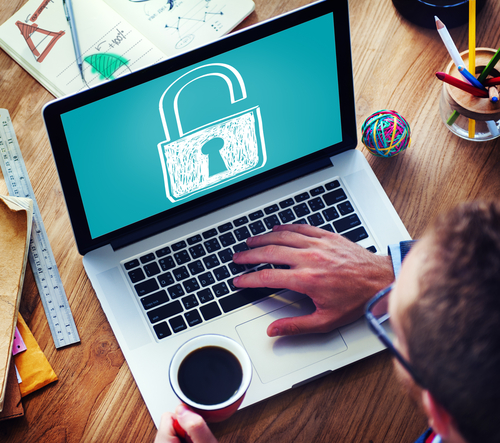Did you think about your electronic assets?
The rise of personal computers, the internet, and now smart phones have revolutionized our lives, and how we transact business. When “getting our affairs in order”, we need to remember the impact of technology on our lives.
Things used to be simple. In a paper based society, it was easy for those we left behind to understand our affairs because we usually left a paper trail. We would receive bills, bank and other financial account statements monthly. At the end of the year we would receive 1099s and other IRS reporting statements which would give our families and personal representatives a roadmap of what we owned.
But now:
- Our paychecks, social security checks, and other receipts may be automatically deposited into our bank accounts.
- Our utilities and other regular monthly bills may be automatically withdrawn from our bank accounts
- In order to avoid annual fees, we may have agreed to have our monthly brokerage statements “delivered” electronically ( meaning we might receive an email from the broker that our monthly statement is available for viewing at their website)
- In a further effort to avoid fees, we may have agreed to have 1099s and other IRS reporting statements either emailed or again “delivered electronically”
- In an effort to keep from being buried in paper, we may have agreed to have our regular bills delivered electronically
- In a further effort to keep from being buried in paper, we may have established online banking and waived the sending of monthly statements.
How will our loved ones know what we have and what our obligations are in the electronic era?
The first step is to make sure that our family has access to our email accounts after we pass, as that is where most of the regular notifications are sent. They need to know  where ALL of our email accounts are maintained, our usernames, and our passwords. (If you have a business email account that contains potentially sensitive or privileged, or confidential material, then maybe our families should not be granted access to those accounts. If you work for a large company, the IT department of your employer should be able to access those accounts. But if you are the sole proprietor of a small business as I am, perhaps you should arrange for your business email to be accessible by an appropriate professional. Also, make sure they have a username and log on to your computer(s) if they are required.
where ALL of our email accounts are maintained, our usernames, and our passwords. (If you have a business email account that contains potentially sensitive or privileged, or confidential material, then maybe our families should not be granted access to those accounts. If you work for a large company, the IT department of your employer should be able to access those accounts. But if you are the sole proprietor of a small business as I am, perhaps you should arrange for your business email to be accessible by an appropriate professional. Also, make sure they have a username and log on to your computer(s) if they are required.
Your email account is merely the surface; 7/8 of the iceberg is below the surface. You have all sorts of online accounts:
- banking, brokerage, finance companies, and other financial institutions;
- utility companies;
- credit card and car financing companies;
- airlines, railroad, hotel and other travel related accounts;
- professional and fraternal groups and associations;
- vendors to your business (Office Max, UPS, FedEx);
- retailers for personal purchases (Amazon, Lands’ End, eBay and Paypal);
- networking, both social and professional (Facebook, LinkedIn);
- other online accounts (Google, Skype, AOL);
- recreational groups including discussion boards
If you are a business owner, you will have some additional user names and passwords to consider:
- access to your web site
- access to your ISP
- access to your server and each computer on your network
- access to your router and/or firewall
- spam filter / anti-viral software
- remote log in
Okay, so you realize there is a lot to track. But how do you securely pass along this information? There are two basic ways: old fashioned paper and pencil, or (dare I say it?) electronically.
Paper and pencil works well. Create your master list. Thereafter, each time you open a new account, enter the name of the account (including the URL would be nice), the user name, and password. The downside to paper and pencil is that it is not particularly secure. If you leave your list taped to your computer screen, the whole world will have access to your electronic life. If it is in a file drawer, your list might be found by someone rummaging through your files. Locked up in a secure (and fireproof) place, perhaps in a sealed envelope, might be the best location. But if it is locked up somewhere, it is more difficult to update.
You could maintain this information electronically. The simplest would be to set up a spreadsheet with all of the pertinent information, saved on your computer. But don’t leave it in the “My Documents” folder entitled “Passwords”. At minimum be creative in titling the file, password protect it, and maybe encrypt it. Instead of keeping it on your hard drive, maybe put it on a USB drive and keep that in a secure place.
Rather than keeping a simple spreadsheet, you might consider using a password safe, such as KeePass. KeePass is essentially a database that works across multiple platforms, including smartphones. You enter your usernames, passwords, and other information, including URLs, into the database. That database is password protected with a single, preferably STRONG, password. It gives you the ability to copy and paste the appropriate password into your browser when accessing secure sites. It will also generate strong passwords for you. There is other software out there, both commercial and freeware, that does the same thing.
If you use either a password protected file on your computer, or if you use a password safe, make sure your family knows where to find the file or safe, and what the master password is. If you prefer to use the old fashioned paper and pencil, make sure your family knows where to find your list of accounts with user names and passwords.
I know, this is another daunting task to add to your to-do list. But once started, it is fairly simple to maintain. As long as you are diligent in maintaining this information, and your family knows how to access it, you will be doing them a great service. And that is a big part of getting your affairs in order.
-Benjamin F. Farah

 View Cart []
View Cart []
 Monday-Friday: 8:30am to 5pm
Monday-Friday: 8:30am to 5pm Virteom
Virteom